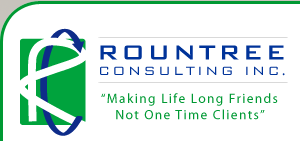| |
|
Accounting Policy and Procedures – Fledgeling and established companies can benefit from developing accounting protocol for company policies and procedures, including a full chart of accounts. We will create and manage accounting systems for effective record/bookkeeping. We also prepare state, federal, and agency documents for reporting returns.
Annual reports – Various agencies require annual reports to update or maintain their records. We can prepare those reports when you receive them.
Financial Reports
Balance Sheet – Assets, Liability, and Equity Statements
Income Statements – Revenues, Operating Expenses, and Net Profit and Loss
|
|
|
 |
Additional Services
Money Management – Assessment of individual financial status for financial planning, including budget of monthly cash flow, methods of bill consolidation, and establishing long term goals for financial security.
Business Name Search – The start of any business begins with a name. We can verify that the name you’ve chosen is available.
Formation of entity – Prepare pertinent documents for company filing of essential components to appropriate agencies.
Types of Entity
Sole Proprietorship and single member LLC
- One individual carries on the business.
- Easiest entity to organize with minimal legal restrictions.
- Does not exist apart from the owner, therefore, all benefits and liabilities are the responsibility of the owner.
- Net profit and losses are reported by the owner and includes self–employment taxes to cover social security and medicare.
|
Non-profit – Organizations that may qualify for exemption from federal income tax include, but are not limited to, the following:
- Charitable organizations
- Religious organizations
- Retirement benefit programs
- Political organizations
- Educational institutions
- Private foundations
- Nonprofit organizations
- Homeowners associations
- Veterans organizations
- Business leagues
- Social and recreational clubs
- Groups organized for community well-being
|
|
S Corporation
- Ownership is limited to 100 shareholders.
- Specific legal procedures in organizing S corporations.
- A corporation ’s life is perpetual and separate from all of it’s owners.
- Net profit and losses pass through to shareholders, therefore, profits are taxed at the shareholder level and losses are limited to the shareholder’s basis.
C Corporation
- Unlimited owners; ownership is determined by ownership of shares of stock.
- Specific legal procedures in organizing C corporations.
- A corporation’s life is perpetual and separate from all of it’s owners.
- Net profits and losses stay at the corporate level and tax are paid by the corporations.
Limited Liability Company (LLC)
- Unlimited owners. Ownership is determined by the Operating Agreement.
- Minimal legal restrictions in it’s organization.
- The conditions of dissolving of an LLC are stated in the Operating Agreement and state law may also restrict the life of an LLC.
- An LLC may elect to be taxed as a Partnership, C Corporation or S Corporation.
General or Limited Liability Partnerships
- Two or more individuals can have ownership.
- Minimal legal restrictions in it’s organization.
- The conditions of dissolving of a partnership are stated in the Partnership Agreement.
- Net profit and losses pass through to members, therefore, profits are taxed at the member level and losses are limited to the member's basis. The General Partner is subject to self-employment taxes.
|
|
|
|
